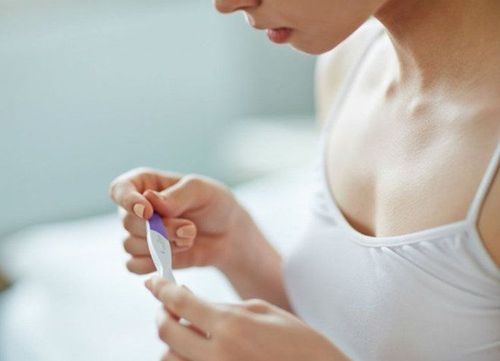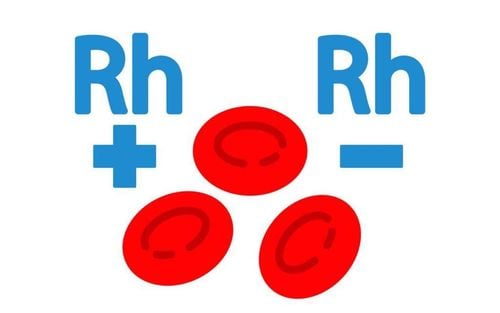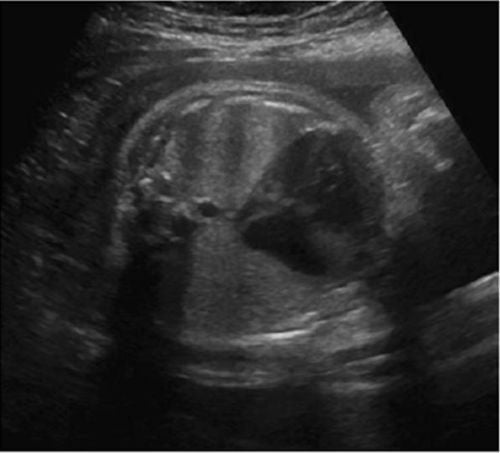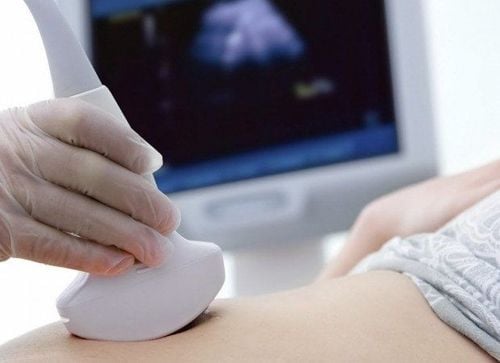This is an automatically translated article.
The article was professionally consulted by Specialist Doctor Obstetrician and Gynecologist - Department of Obstetrics and Gynecology - Vinmec Hai Phong International General Hospital.
Abortion abortion can cause cervical damage, uterine perforation, heavy bleeding, inflammation... if the person performing the procedure is too rough or the curettage is not sterile carefully. This is also one of the causes of infertility in women.
1. What is an abortion?
Miscarriage is something that women do not want, but in some cases due to unintended consequences (trouble), or fetus (chromosomal abnormality), mother's side (inflammation) infection, endocrine, environmental factors, uterine malformation...) so miscarriage occurs.
When having a miscarriage, abortion is one of the fastest methods to remove the pregnancy and placenta to avoid bleeding and infection after a miscarriage for a woman. This method is performed using specialized tools and the success rate is close to 100%.
This method is performed when the pregnancy is about to miscarry, is having a miscarriage and has already miscarried, the cervix is almost completely erased, causing bleeding. Contraindicated in miscarriage due to infection, miscarriage, hemorrhage, low blood pressure.

2. Some complications when having an abortion
2.1. Uterine perforation Uterine perforation is one of the complications of abortion. This can happen in the case of dilation of the cervix or when having an abortion due to the need for a metal instrument to be inserted into the uterus to perform the procedure.
Management:
To know the exact extent of the perforation, the doctor will need careful ultrasound and endoscopy. During curettage, the patient is painful and has a lot of vaginal bleeding. Use a measuring tape to re-explore the uterine cavity to see if there is a uterine perforation. In case the perforation is small, the pulse and blood pressure are stable, and there is no infection, it can be treated medically. If the perforation is large or there are signs of internal bleeding, surgical repair of the perforation or hysterectomy is required, depending on the lesion. 2.2. Bleeding Whether anesthetic or anesthetic is used during an abortion, the chance of bleeding is equal.
Treatment:
If there is a lot of bleeding, use uterotonics. Re-examine the uterine cavity for perforation, residual placenta, poor uterine contractility, or cervical bleeding where Pozzi forceps are applied. 2.3. Vagal shock Occurs when anti-shock medication is not administered, the pain relief is not good, or the procedure is performed too vigorously.
Treatment:
Shock accompanied by shortness of breath, cyanosis, rapid pulse, decreased blood pressure, the procedure must be stopped immediately to prevent shock. 2.4. If there is a residual placenta after an abortion, the abortion procedure is not successful. If the placenta is left behind, it will cause bleeding, and the uterus will not contract. The placenta can be detected through ultrasound and must be intervened in time so as not to affect health.
Treatment:
Ultrasound to re-evaluate whether placenta is missing; If it is left over, it must be scraped. 2.5. Infection Infection is often the result of poor aseptic technique. Infectious complications may have outward signs such as fever, pain in the uterus,...
Treatment:
For complications caused by infection, most of the cases are treated with antibiotics. treat. If there is any doubt, scrape it again when the fever is gone.
3. Care after abortion

After an abortion, it is important to note that you should take medicine according to the prescription and follow up with the doctor on time. . After an abortion, there may be vaginal bleeding and lower abdominal pain similar to menstrual cramps, which is normal. Then you need to use tampons or cloth buckets to absorb the blood Take the prescribed medicine and follow the doctor's schedule. Wash the body and genitals with clean warm water. A mild, herbal feminine hygiene solution can be used. Change tampons at least 3 to 4 times a day. Do not douche or insert anything into the vagina. Do not have sex until the vaginal bleeding stops, at least 2-3 weeks after the abortion. Rest, do not do heavy work for 2-4 weeks. Eat nutritious food to restore health, not excessive abstinence. Should keep the most comfortable spirit, quickly remove the old pain to prepare psychologically in the next pregnancy to be as safe as possible. When there are abnormal symptoms such as a lot of pain in the lower abdomen, muscle pain, abdominal pain, fever or chills, bleeding lasting more than 10 days, the vagina secretes a lot of foul-smelling discharge,... seek medical attention immediately.
4. When should I get pregnant again?

The mother should get pregnant again after at least 3 to 6 months after abortion
It is recommended that after an abortion or early miscarriage, the mother should wait at least 3 to 6 months for the body to recover completely before getting pregnant again.
At this time, the mother's body needs time to recover, the lining of the womb must be healthy to be ready for a new stage of pregnancy. Besides, this is also a time to help couples calm down, forget the grief of losing a child, to prepare the best mentally for the next pregnancy.
Once you are mentally and physically prepared to get pregnant again after a miscarriage, see your doctor for the best advice.
In the case of an unwanted pregnancy after an abortion, to be safe, pregnant women should take care of themselves more by supplementing essential nutrients for the body, strengthening the spirit and visiting regularly according to the doctor's instructions. doctor's schedule.
Please dial HOTLINE for more information or register for an appointment HERE. Download MyVinmec app to make appointments faster and to manage your bookings easily.













